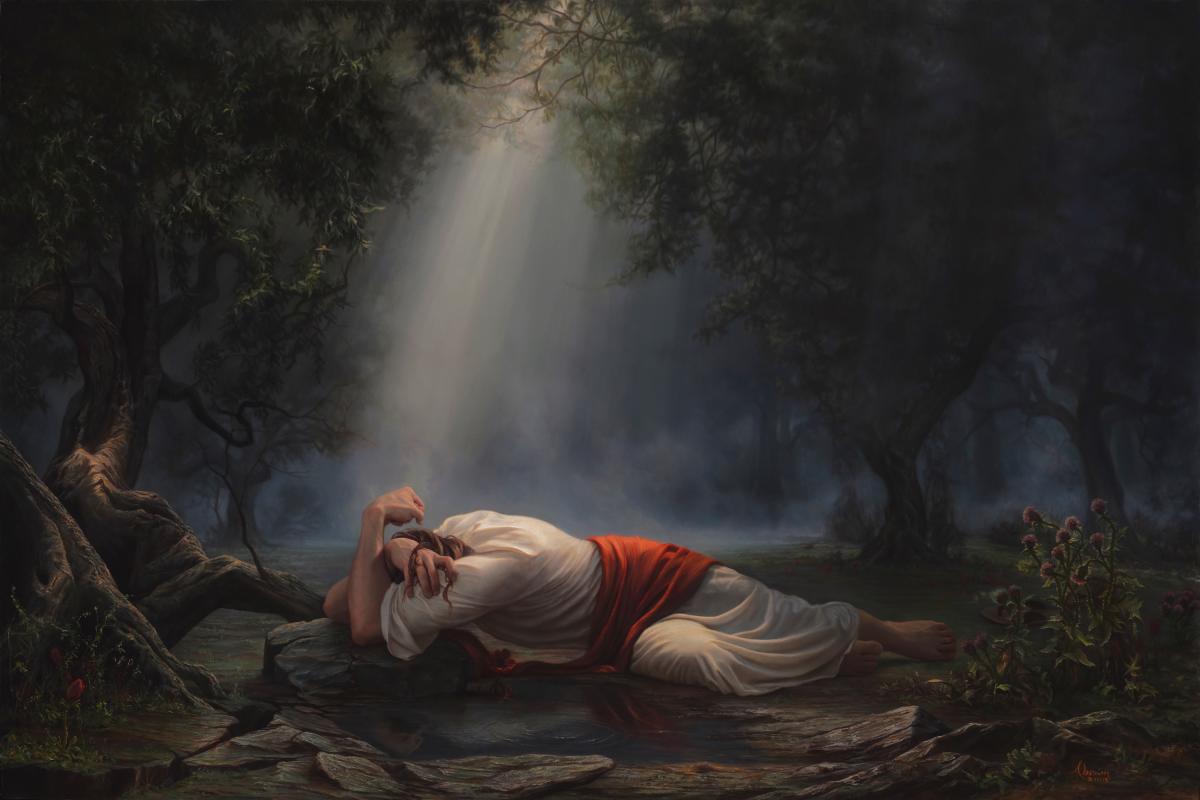"Then saith he unto them, My soul is exceeding sorrowful, even unto death: tarry ye here, and watch with me.
"And he went a little further, and fell on his face, and prayed, saying, O my Father, if it be possible, let this cup pass from me: nevertheless not as I will, but as thou wilt."
(Matthew 26:38-39).
The moment depicted in these verses is - to me- the most tender, the most sacred, the most sublime moment in all of human history.
Jesus Christ - the Son of God, the Only Begotten of the Father, the Great Jehovah - descended below all things and took upon Himself the overwhelming load of our sins and pains and woes (Mosiah 3:7-9; Alma 7:11-13).
His humility in washing the feet of His Apostles when He was the King of Kings pales in comparison to His descending from His Throne above to suffer and die for one and all.
Much has been written and will be written about our Savior and His atoning sacrifice. I wish to focus on only one crucial point.
It is infinite.
It does not wear off. It is not limited. It is not, as my title suggests, a magical spell that breaks when the clock strikes midnight.
We will not be waltzing around in heaven only to suddenly realize that we have been transformed back into our rags of mortality, the stains from former sins seeping through the facade of our regal attire.
When we fully repent, the atonement of Jesus Christ fully cleanses us from our sins.
When asked about our former self, we can say as did Shakspeare's character Duke Senior, “Twas I; but ’tis not I:"
I love these stirring words from a favorite author, C.S. Lewis (you really should read the whole quote):
"That is why He warned people to ‘count the cost’ before becoming Christians. ‘Make no mistake,’ He says, ‘if you let me, I will make you perfect. The moment you put yourself in My hands, that is what you are in for. Nothing less, or other, than that. You have free will, and if you choose, you can push Me away. But if you do not push Me away, understand that I am going to see this job through. Whatever suffering it may cost you in your earthly life, whatever inconceivable purification it may cost you after death, whatever it costs Me, I will never rest, nor let you rest, until you are literally perfect— until my Father can say without reservation that He is well pleased with you, as He said He was well pleased with me. This I can do and will do. But I will not do anything less.’"
I love the phrase "infinite atonement", especially when broken down into smaller parts.
In-finite.
In negates finite.
Not finite.
Finite meaning having limits.
This is without limits or bounds.
At-one-ment.
To take two estranged or different things and make them one.
"That they all may be one; as thou, Father, art in me, and I in thee, that they also may be one in us... I in them, and thou in me, that they may be made perfect in one"
John 17:21, 23
There is no limit to the Savior's ability to make us one with the Father.
The only limit is our agency.
Will we choose Him?
Or, as He stirringly asked His Apostles, "Will ye also go away?" (John 6:68).




